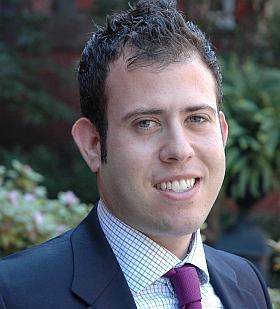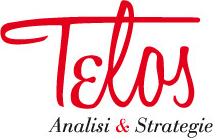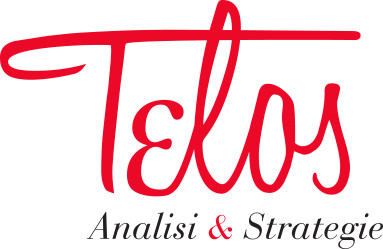March 2018, Year X, no. 3
James Kirchick
An enlightened democratic nationalism for Europe
“German politicians and intellectuals talk a great deal about how everything they do is in the service of a great cause (usually “Europe”), but often their policies are in the service of naked German national interests.”
Telos: The subject of your first book ‘The End of Europe: Dictators, Demagogues, and the Coming Dark Age’ is populism in Europe. How did you become interested in it?
James Kirchick: I have been interested in European history, culture and politics for quite some time. As a student at Yale, I studied the Cold War and spent a summer working for a UK member of Parliament. From 2010 until 2013, I worked as a journalist based in Europe. My first posting was to Prague, as writer-at-large for Radio Free Europe/Radio Liberty, from where I travelled across the former Soviet space. After that, I was based in Berlin as a fellow with the Robert Bosch Foundation. I have continued to travel to Europe frequently since relocating back to Washington. After several years of reporting across Europe, it became clear to me that most of what I was writing invariably fell into one of several categories: Russian revanchism and meddling in European politics, the rise of anti-Semitism, the fraying of the transatlantic relationship, the absence of American leadership, and the ascendance of illiberalism more broadly. The contemporary Europe that I had grown up considering to be a place of unparalleled peace and prosperity seemed to be sliding in the wrong direction on all these fronts. When the Russians annexed Crimea (upon the same pretext as Hitler’s annexation of the Sudetenland) and many in the West didn’t seem to understand the severity of what had just transpired, I felt: now was the time to put all of my thoughts into a book.
In your book, touring seven nations as case studies, you paint a dark picture of contemporary Europe. However, in your brief conclusion, there are some optimistic forecasts suggesting that, perhaps, the end of Europe is not quite here yet. Why?
The good part about being a pessimist is that you’re never disappointed by the news, and occasionally pleased by it. More seriously, there are several reasons to be optimistic about the future of Europe. When it comes to Russia, people are more alert to the threat the Putin regime poses than they were when I started writing The End of Europe in 2014. Certainly, Moscow’s intervention in the U.S. presidential election has woken us up. One of the themes in my book is how Western Europeans have had a disturbing tendency to brush aside the warnings of Eastern Europeans about Russia; while there are still many Western Europeans who downplay the Russian threat, they are not as influential as they used to be. Relatedly, Donald Trump’s election also appears to have made people rethink the appeal of populism. That said, presidency may have a positive effect on Europe by forcing its leaders into becoming more self-sufficient. A silver lining of his constant harping about low European defense spending is that NATO members are beginning to spend more. I don’t appreciate the way he has gone about doing this – attacking our allies as scroungers – but he is not wrong when he says that America’s NATO allies have taken our defense guarantee for granted. On the economic front, the Eurozone is showing some signs of recovery, but it is far too soon to claim any sort of long-term confidence. And as for the question of Islam in Europe, it has unfortunately taken a series of massive terrorist attacks to shake up the political establishment into understanding that assimilating masses of Muslim immigrants is a far more difficult task than originally conceived. The gap between elite and public opinion on Muslim immigration into Europe will have to be narrowed over the coming years or we can expect to see the likes of President Le Pen, etc. across the continent.
Germany is, doubtless, the EU policies leading country. However, you have recently described Germany’s foreign policy as ‘often unilateral and nationalist’. It is an extremely interesting and provocative reading. Would you like to tell us more?
Because of its history, anything that reeks of nationalism is more taboo in Germany than anywhere else in Europe. Yet just because nationalism is officially taboo doesn’t mean that Germans are all selfless multilateralists. What this therefore means is that a large space exists between German rhetoric and reality. German politicians and intellectuals talk a great deal about how everything they do is in the service of a greater cause (usually “Europe”). But often Berlin’s policies are undertaken in the service of naked German national interests. Nowhere is this clearer than on the subject of energy, where Germany’s pursuit of the Nord Stream pipelines is directly at odds with the European Union’s common energy policy. For cheaper energy prices, Germany is willing to completely disregard the well-established security concerns of its Central and Eastern European neighbors, who also happen to be NATO treaty allies and fellow EU members. The widespread pro-Russian sentiment in Germany comes at the cost of European solidarity. I would also argue that Germany’s approach to the refugee crisis – opening its doors to some 1.5 million people without consulting its fellow EU members – was an example of “humanitarian unilateralism” undertaken in part to assuage German historical guilt, without much consideration given to how other European countries might feel. Similarly, the Euro has worked wonders for the German economy, providing a huge market for German goods. Yet Germans talk as if the Euro is some great burden upon themselves; some even speak wistfully of bringing back the deutschemark. While it’s true that Germany has provided most of the funds for a series of bailouts, that hardly outweighs the economic benefits Germany has accrued by being in the Eurozone.
Advocating LGBT rights. This is another battle of yours. What do you think of the role of the media in the pursuit of LGBT equality worldwide?
The role of the media should be to tell the truth. And the truth is that a society’s treatment of LGBT people can tell you a great deal about its decency in general. It should come as no surprise that the richest, most democratic, and socially egalitarian societies (I’m thinking of those in Northern Europe) were the earliest to come out in favour of LGBT equality, while today it is Russia – despotic, corrupt, cruel – which has made homophobia a state policy, one that it exports abroad. I can give a personal example of how we journalists can use the truth to support the equality of LGBT people. In August of 2013, the Kremlin-funded cable “news” network known as RT (formerly known as Russia Today) invited me to discuss the sentencing of Chelsea (né Bradley) Manning, the U.S. Army private who handed over reams of classified material to Wikileaks. Under most circumstances, I would have flatly refused to appear on RT -- or any sham “news” channel operated by an authoritarian regime that imprisons and kills journalists -- on the grounds that making an appearance on the network, even while expressing opinions hostile to its editorial line, would lend it a degree of legitimacy it doesn’t deserve. I was about to write an email to the booking producer explaining just this sentiment when an idea popped into my head. Why not use the opportunity to shame and embarrass RT, as a journalistic colleague had done years earlier by reciting the names of Iranian political prisoners on Press TV, a “news” channel funded by the Islamic Republic of Iran? I had a ready-made cause to trumpet: just a few weeks earlier, the Duma had unanimously passed a law prohibiting the dissemination of pro-gay “propaganda,” earning Moscow the sort of global opprobrium not seen since the cause of Soviet Jewry roused a global human rights movement advocating for their freedom. Why not harness that energy to expose the sinister nature of RT on RT itself, drawing attention to the broader problems posed by the Russian regime and its disinformation apparatus? Equipped only with a pair of rainbow-colored suspenders and my righteous indignation, and having only a vague idea of what it was I would actually say, I hijacked the program to decry Russia’s state-sponsored homophobia and asked my hosts how they could call themselves journalists and “go to sleep at night” in light of the Russian government’s harassment and murder of reporters. After about 2 minutes of arguing with the hosts, RT finally cut me off. Almost immediately after the transmission was cut off, I became a target of vitriolic abuse by anonymous Twitter trolls and conspiracy-obsessed RT personalities. The video clip of this encounter immediately went viral, quickly attracting some 800,000 views online and mentions in newspapers, magazines and websites all over the world. Figures as diverse as British actor Stephen Fry and the President of Estonia tweeted their support of my intervention. A week later, I addressed thousands of people protesting the law outside the hulking Russian embassy on Unter den Linden in Berlin. This personal encounter with RT prepared me for the information war blitzkrieg that Russia would unleash in response to the protests that swept Ukraine just three months later.
Marco Sonsini
Editorial
On more than one occasion I’ve written that the publication planning of our interviews doesn’t reflect a specific editorial decision, but rather is almost always dictated by the response of the people we interview. And yet the blindfolded goddess of Fortune who assists the incompetent rather than the bold, often comes to our aid. And our March issue is proof once again of this. This time, Primo Piano Scala c is hosting James Kirchick, the author of an excellent and eloquently titled book that still hasn’t come out in Italy "The End of Europe: Dictators, Demagogues, and the Coming Dark Age".
The book explores the main lines of fracture within Europe today, from north to south, east to west, noting with concern conservatives’ growing enthusiasm for Russian President Vladimir Putin, a sentiment that may also be found in Republican circles in the US, something which, in our opinion, isn’t simplistically driven by Russian counter information. We haven’t limited ourselves to asking him about his book, and another topic of great interest is Kirchick’s analysis of German leaders, whom he describes as lucid politicians that knowingly further the interests of their own country, often disguised by the pursuit of the European common good.
From Konrad Adenauer to Willy Brandt, from historic Minister for Foreign Affairs Hans-Dietrich Genscher to Angela Merkel, according to Kirchick, they all paint their own foreign policy as the epitome of altruistic multilateralism. In an unforgettable speech at the UN General Assembly, Sigmar Gabriel, then the German Minister for Foreign Affairs, condemned ‘national selfishness’ and declared, in a thinly veiled attack on Trump, that ‘The motto: “Our country first” only leads to more national confrontations and less prosperity’.
However, Kirchick disagrees with such German portrayal of reality, and reiterates time and again that Berlin’s praise of multilateralism and condemnation of nationalism is just a ruse for a foreign policy that is often unilateral and nationalistic; and he includes some practical examples to support this argument. The latest news is that Gabriel will not be part of the new German government and that another party member will be appointed to his post, which will nevertheless remain the prerogative of the Social Democratic Party (SPD). Is anything going to change? Only time will tell.
A fierce attack on Putin and just a hint of optimism about the future of Europe: yes, Kirchick also offers this to our readers. In the last part of Kirchick’s interview we focus on another of his warhorses: the struggle for LGBT rights. The story he tells us to illustrate what can be done by the press in this battle is truly compelling. Now, all you have to do is read it; and we’ll leave it up to you to interpret the unintended timing of this interview.
Mariella Palazzolo

James Kirchick is a visiting fellow in the Center on the United States and Europe and Project on International Order and Strategy at the Brookings Institution. A widely published journalist, he is author of “The End of Europe: Dictators, Demagogues and the Coming Dark Age” (Yale, 2017), a correspondent for The Daily Beast, a columnist for Tablet Magazine, and a frequent contributor to a wide array of publications including the Los Angeles Times, The Washington Post, Frankfurter Allgemeine Zeitung, Politico, Foreign Policy, The Weekly Standard, and Commentary among many others.
James works on European politics, American politics, and U.S. grand strategy. He began his professional journalism career at The New Republic covering domestic politics, lobbying, intelligence, and American foreign policy. In 2010, he moved to Prague to become writer-at-large for Radio Free Europe/Radio Liberty, traveling widely to cover the politics and cultures of the 21 countries in RFE/RL’s broadcast region. Among the stories he reported on were the fraudulent 2010 presidential election in Belarus, ethnic cleansing in Kyrgyzstan, and the Libyan Civil War. Prior to Brookings, he spent four years as a fellow with the Foreign Policy Initiative in Washington.
A leading voice on American gay politics and international gay rights, he is a recipient of the National Lesbian and Gay Journalists Association Journalist of the Year Award and is currently at work on a history of gay Washington, D.C. for Henry Holt. He has been a Robert Bosch Foundation Fellow in Berlin, a Hoover Institution Media Fellow and a Phillips Foundation Journalism Fellow, and he is a professional member of the PEN American Center and a term member of the Council on Foreign Relations.
Born and raised in Boston, Massachusetts, Kirchick is a graduate of the Roxbury Latin School and holds degrees in both history and political science from Yale.
Marco Sonsini







SocialTelos